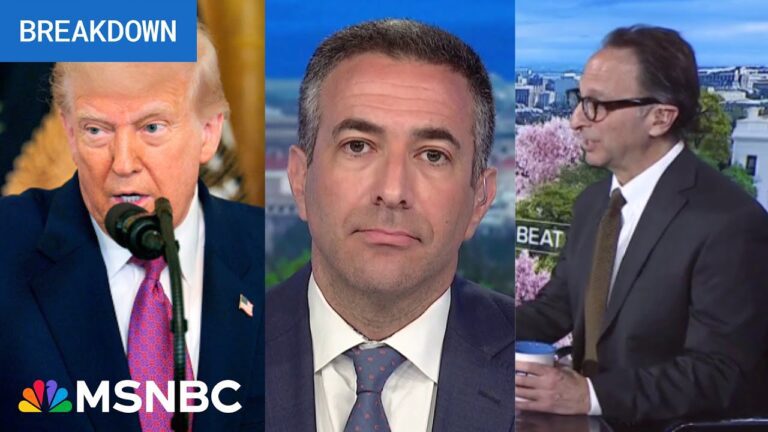Video at the bottom!
The segment begins with Ari Melber addressing the audience and emphasizing a significant development from within the Trump administration—a whistleblower complaint that raises serious allegations against the Department of Justice (DOJ). The complaint highlights that a senior Trump official suggested the DOJ could ignore judicial orders that the president disagreed with, echoing actions typically associated with authoritarian regimes. This insider account comes from a long-serving DOJ attorney who witnessed these troubling directives firsthand, which led to his ousting after he refused to comply with unlawful requests.
The whistleblower’s detailed complaint is not just a single quote or anecdote; it presents a rigorous case backed by emails and documents. Melber explains how the written complaint is now a formal matter that has been shared with Congress, stirring headlines that reflect the gravity of the allegations—namely, a threat to the rule of law.
Discussing the implications, Melber stresses that violating court orders could undermine the very foundations of democracy and the rule of law that distinguish the U.S. from numerous other nations. The discussion references historical instances where court decisions were followed, emphasizing the importance of judicial authority and the dangers posed when officials in power express a desire to circumvent it.
Andrew Weissmann, a former DOJ official, reinforces this view, underscoring the whistleblower’s credibility and background, making it clear he is not a disgruntled employee but a seasoned insider. The segment elucidates that the allegations involve broader ramifications for individuals affected by their actions, reiterating that the court system’s integrity is crucial for protecting citizens’ rights. The whistleblower’s complaint acts as a lens revealing a systemic intention to disregard established legal norms, raising alarm over potential autocratic impulses within the administration and pushing against the pillars of democracy.


